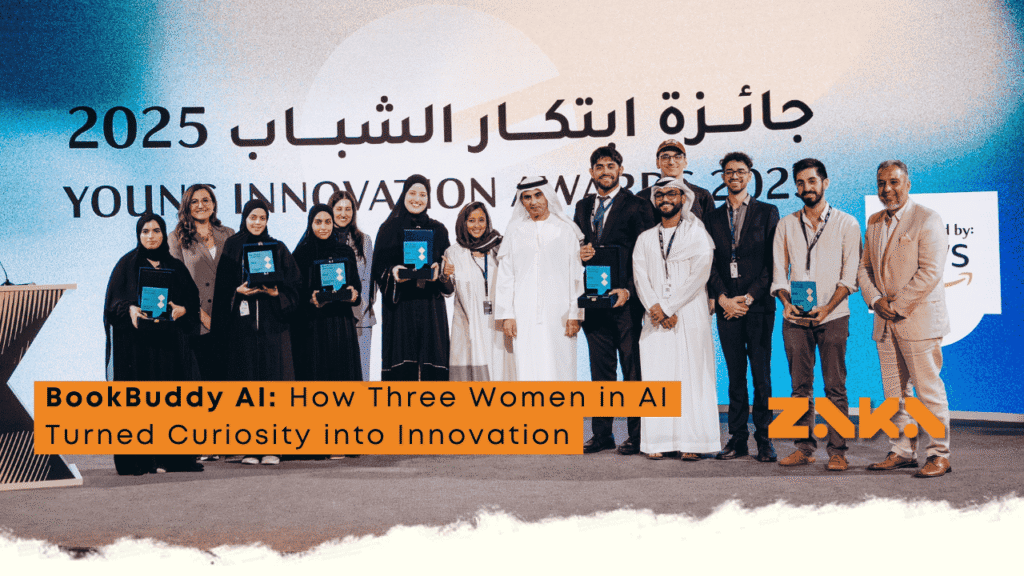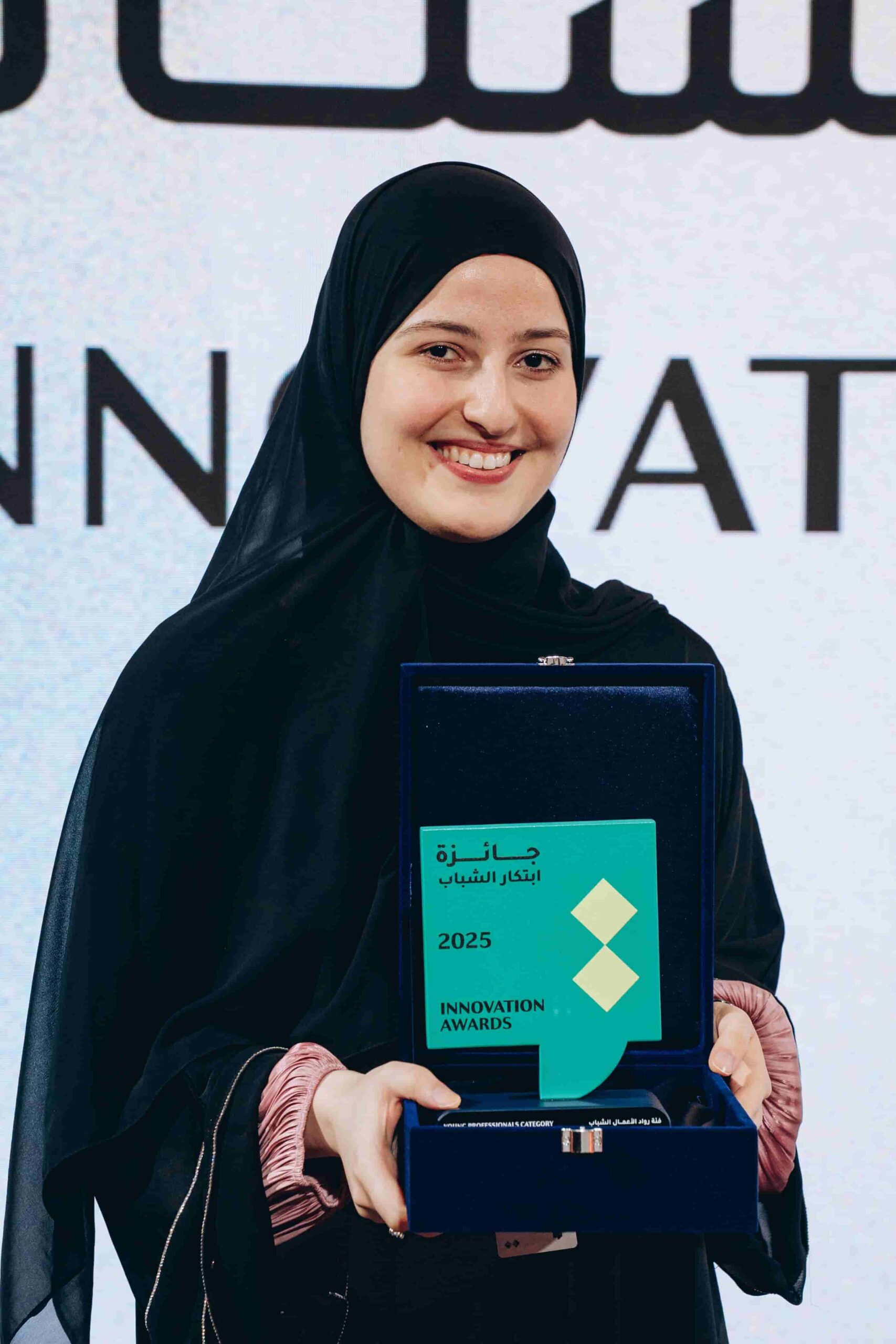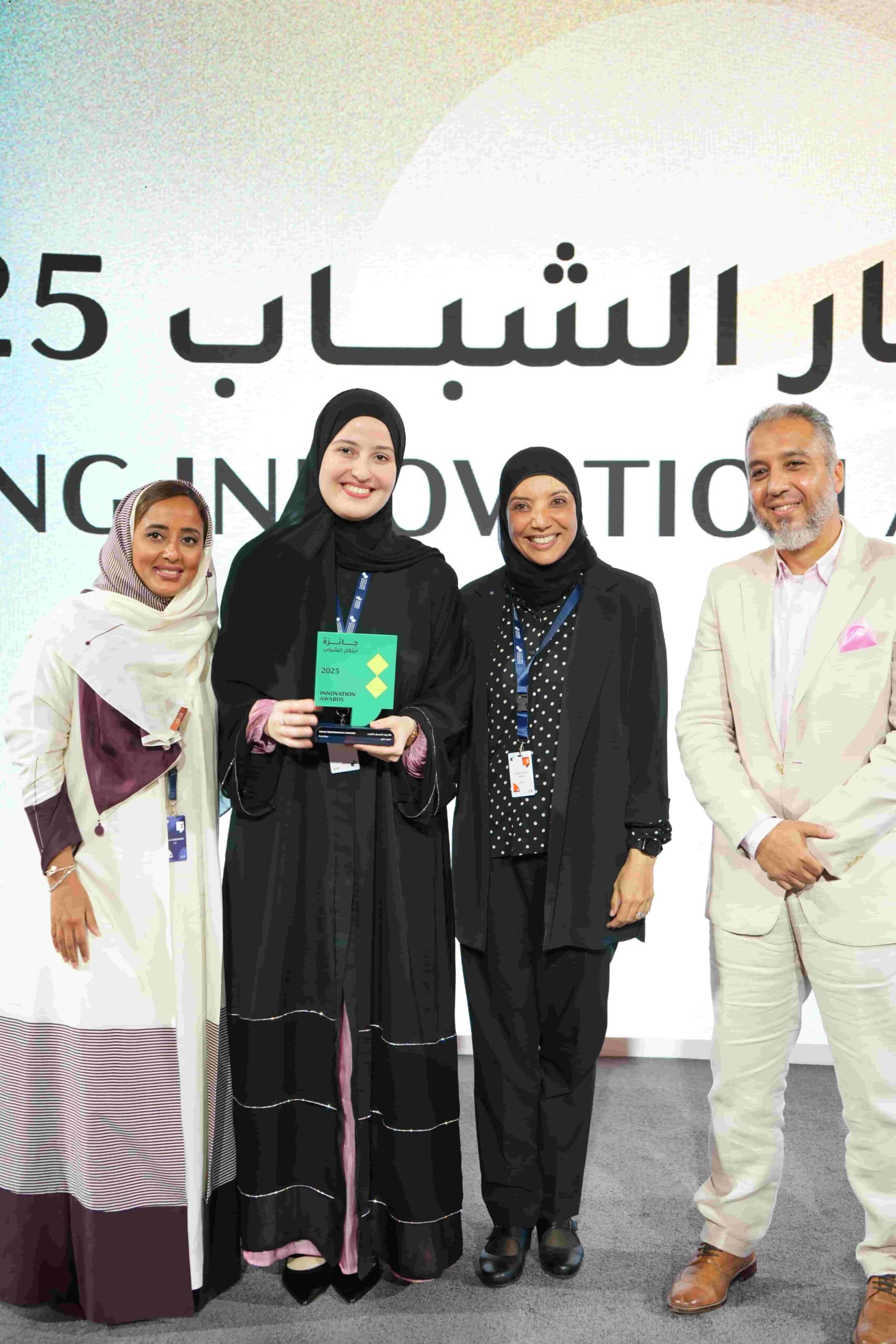
It all started with curiosity. Three young women from different backgrounds, Maria Latifa Benkhelifa, a mathematics graduate passionate about problem-solving, Sarah Allam, an engineer fascinated by technology, and Arwa Abboud, a computer scientist and educator crossed paths in the Women in AI program by ZAKA in collaboration with the Abdullah Al Ghurair Foundation.
When we joined the program, our knowledge of artificial intelligence was minimal. AI felt like an exciting but distant world, something we had heard about, but never imagined we could build with. Yet what brought us together was passion: a shared belief that learning this powerful technology could allow us to make a difference in our community.
In a world where children are surrounded by endless digital distractions, the Arabic language often struggles to hold its place. Traditional books feel static, modern tools are mostly in foreign languages, and the joy of reading in Arabic is fading. Every journey begins with a question. For us, it was: Why is Arabic, a language of history and beauty, losing its presence among today’s youth?
This was the challenge that inspired our team Maria Latifa Benkhelifa, Sarah Allam,and Arwa Abboud to create BookBuddy AI (كتابي صديقي), an intelligent reading assistant that transforms Arabic PDFs into interactive, living stories. With BookBuddy, children don’t just read; they ask, listen, practice, and explore.
We noticed three pressing challenges:
This problem became our mission. As part of the Women in AI program, we were given just two months to design and deliver a graduation project that applied our new skills. Out of that challenge, BookBuddy AI (كتابي صديقي مع الذكاء الاصطناعي) was born.
What made this project possible was a technical breakthrough. We took a non-bilingual large language model, LLaMA 3.2 with 1B parameters, and fine-tuned it on a synthetic Arabic dataset that we carefully designed and created as a team. By curating culturally relevant examples and applying retrieval-augmented generation (RAG) techniques, we transformed a model that had little understanding of Arabic into a tool capable of engaging in meaningful, context-aware dialogue in Arabic.
At its core, BookBuddy is an AI-powered interactive reading assistant that transforms Arabic PDFs into a living, breathing experience. With it, a child can:
But when the program ended, we realized our journey with BookBuddy was only just beginning. We didn’t want to stop at a prototype built for graduation. We wanted the project to grow further to become a platform that reimagines Arabic learning for classrooms, libraries, and homes across the region.
That’s why we are now working to expand BookBuddy’s features: integrating OCR for scanned texts and image based books such as comic stories, building VR storytelling environments and interactive simulations, introducing cartoon companions for interactive lessons, and even exploring sign language support to make it inclusive for every learner including people of determination, by giving them the chance to learn and engage with Arabic through sign language.
What started as a graduation project has become our shared vision: a movement to revive Arabic literacy through AI, and to prove that technology can preserve culture while inspiring the future.




What started as a simple idea soon captured attention and success. At the Congress of Arabic and Creative Industries 2025, BookBuddy AI competed in the Young Innovation Awards. From over 40 applications, our team was selected among the finalists invited to pitch live before a panel of experts and industry leaders.
Standing alongside other inspiring youth-led projects, BookBuddy AI rose to the top. After sharing our vision and demonstrating the prototype, our project was awarded First Place in the Young Entrepreneurs category.
For us, it wasn’t just about the prize. It was about proving that a project built in just two months by three women who began with minimal AI knowledge could rise to the top among so many talented teams. It validated our belief that with passion, skills, and teamwork, we can build solutions that serve culture, education, and society.
Looking back, it’s hard to believe that only months before, we had minimal knowledge of AI. Today, we stand as practitioners who built a project that has been nationally recognized.
The Women in AI program didn’t just teach us about algorithms. It gave us:
Most importantly, it taught us that when three passionate individuals come together with purpose, they can create something bigger than themselves.